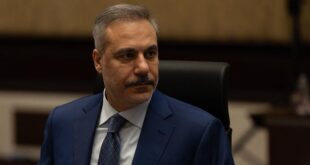The Bulgarian official, who caused an uproar after threatening to block Turkey’s application to join the European Union unless it pays out billions of euros in compensation for displaced people, has been suspected to speak for the whole government.
“Bozhidar Dimitrov’s statement is a diplomatic gaffe, but it is hardly his own stand alone,” Socialist MEP Iliyana Yotova said on Sunday.
She recalled the official in the Bulgarian government’s press office, Veselin Ninov, who told EUobserver on Monday that Dimitrov’s statement reflects government policy, a position that cost Ninov his post.
“The government dismissed this man all too quickly, took him away from the media spotlight and refused to give him the opportunity to defend his position,” Yotova said.
According to her Bulgaria will face an uphill struggle in trying to settle the dispute since Dimitrov has already “blocked the efforts of the diplomacy to bring about more serious results”.
Bozhidar Dimitrov, a Bulgarian cabinet minister without portfolio who runs the country’s Agency for Bulgarians Abroad, has repented over his rash step.
According to Dimitrov he has gotten wrong a report of the European Commission on Turkey’s progress, which has recommended that the country sticks to its commitments.
Prime Minister Boyko Borisov has threatened to sack Dimitrov in an attempt to make good in the dispute, which has elicited a high-level rebuke from Turkey.
Bulgarian deputy foreign minister Marin Raykov also tried to ease tensions, saying that there is no threat of a veto and that Bulgaria backs all the decisions of the European Union, concerning the dialogue between Brussels and Ankara.
Bulgaria and Turkey concluded a deal in 1925 in which they agreed the value of the lost land and property, but the compensation has never been paid. In 1983 the Bulgarian Foreign Ministry claimed that the assets left behind by the expelled Bulgarians were worth USD 10 B.
Minister Bozhidar Dimitrov however had said that considering the years of foot-dragging Sofia is within its rights to demand at least twice as much money.
Turkey began accession talks with the EU in 2005 but progress has been slow, with just 12 out of 35 negotiation chapters opened so far.
 Eurasia Press & News
Eurasia Press & News



